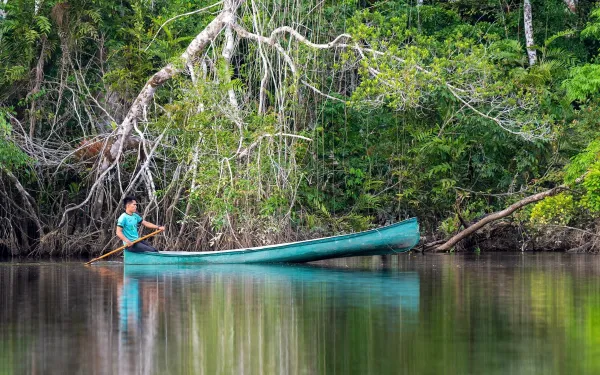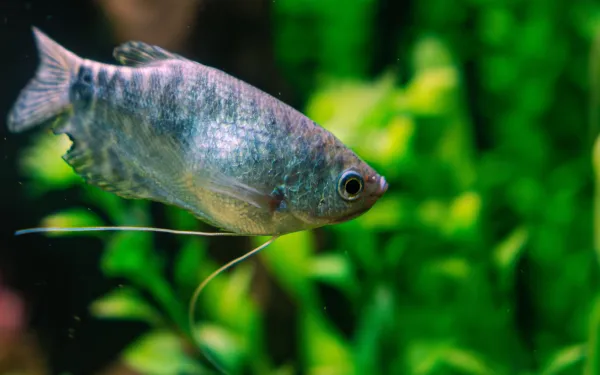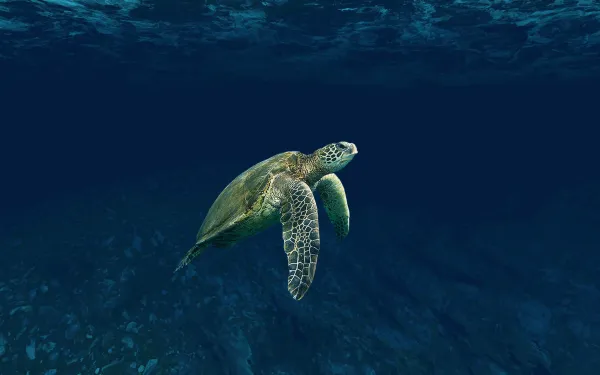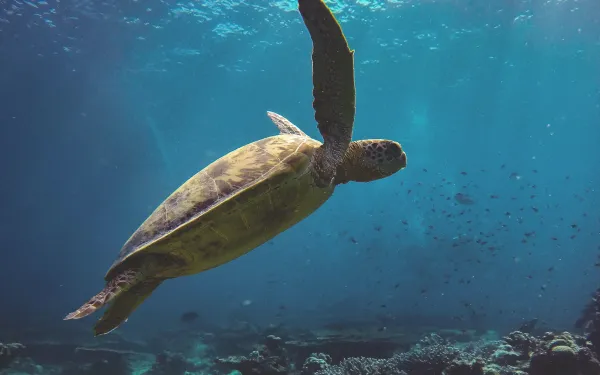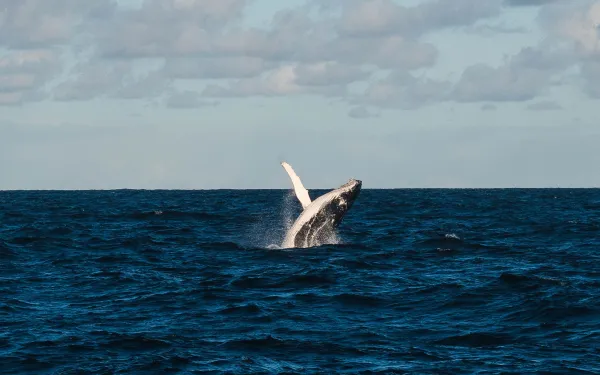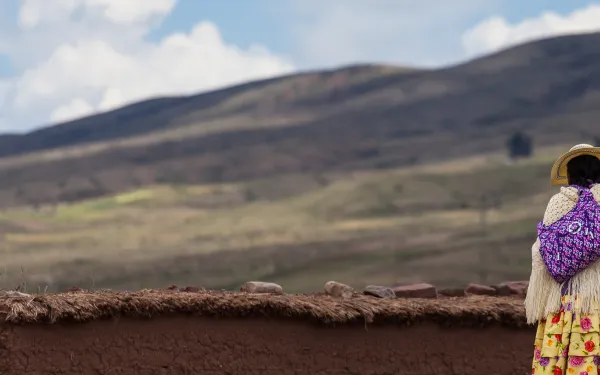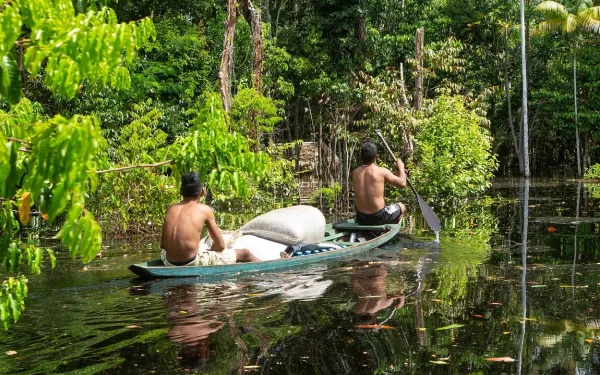
The triple planetary crisis: What is it and what can we do about it?
You may have heard that humanity is facing "a triple planetary crisis.” In the words of United Nations Secretary-General António Guterres, this crisis "threatens the well-being and survival of millions of people around the world." But what exactly does it mean? The triple planetary crisis refers to three interrelated problems: climate change, pollution, and biodiversity loss. Each of these problems is a crisis with its own causes and effects, but all three converge and feed on each other. All three affect human rights, and more intensely impact people in vulnerable conditions. The climate crisis The United Nations considers climate change to be humanity's most urgent problem and the greatest threat to human rights. Climate change, which involves long-term changes to the planet's temperatures and weather patterns, can completely alter ecosystems. Although changes in climate can occur due to the natural patterns of the planet, what we are facing is caused by human activities. Since the Industrial Revolution, there has been an accelerated change in the planet's average temperatures. One of the primary causes of that change is the exploitation and use of fossil fuels. The climate crisis, then, refers to the consequences of climate change caused by human activities, which include: an increase in the intensity and severity of natural events such as droughts, fires, and storms; rising sea levels and the melting of the poles; changes in the hydrological and climatic cycles that affect biodiversity; and impacts on the enjoyment of human rights. The pollution and waste crisis The dominant economic system, dependent on consumption, implies the generation of high levels of pollution and waste that have a great impact on human and ecosystem health. Air pollution is the leading cause of disease and premature death worldwide. The World Health Organization estimates that 7 million people die prematurely each year because of poor air quality. Air degradation is caused by emissions from factories, transportation, and forest fires. Those who lack access to less harmful technologies for cooking or keeping warm also breathe polluted air in their homes. Air pollution is related to climate change, as many of the emissions also warm the planet. Pollution caused by plastics and microplastics is another global concern, as it directly affects biodiversity. An increasing number of studies are finding that plastics are affecting the health of people and other living things. They take centuries to decompose, and are derived from petroleum, a fossil fuel. And we can’t forget pollution caused by extractive activities which, in addition to generating greenhouse gas emissions and leaving in their wake chemicals that are toxic to health, degrade freshwater sources and large tracts of land. The biodiversity loss crisis Biodiversity loss refers to the decrease and disappearance of biological diversity: flora, fauna, and ecosystems. This crisis is caused by the two previous crises, in addition to the overexploitation of resources and changes in land use—which cause overfishing, illegal hunting and trafficking, and deforestation—and the introduction of non-native and invasive species. This loss also implies the decline of many of the species on which we depend. Its impacts extend to affect food supplies and access to fresh water. One example is the Amazon, the world's largest tropical forest and a global climate stabilizer. It is home to 10 percent of the planet's known biodiversity and is the ancestral home of more than 470 indigenous and traditional peoples. The Amazon is endangered by colonization, deforestation, and extractive activities, among other threats. The situation is so serious that the point of no return for the Amazon, in which deforestation levels cancel out its capacity for regeneration, is no longer a future scenario. Actions to confront the triple planetary crisis The triple planetary crisis is a complex problem involving diverse stakeholders and requiring multidisciplinary solutions. Although local actions and individual lifestyle changes can help, many of the necessary actions require decisions on a global scale and profound changes to economic, political, and social systems. According to the United Nations, global actions to confront the crises must include: Limiting global temperature increase to 1.5 degrees: this means that global emissions should be reduced by 45 percent by 2030, with the goal of achieving carbon neutrality by 2050. Accelerating the expansion of clean renewable energies: to achieve the above, a drastic reduction in the use of fossil fuels is required to make way for energy systems based on renewable sources that are sustainable over time and respectful of the environment and people. In addition to combating climate change, this would reduce air pollution. Investing in adaptation and resilience: this means considering those who are already suffering the impacts of the climate crisis in the solutions, with emphasis on the nations, people, and communities in vulnerable situations and who are least responsible for these crises. Conserving and protecting 30 percent of the planet: this applies particularly to areas of biodiversity importance, including the ocean. It also implies actions to mitigate climate change. Improving the food system: this includes changes in irrigation and soil management, as well as producing healthier food and reducing food waste. Leaving no one behind: the measures described above must be carried out simultaneously and with a focus on protecting human rights, as they represent an opportunity to reduce the inequalities that are both a cause and a consequence of the crises. Making progress before the triple crisis These crises threaten not only our basic sources of livelihood, but even our mental health. And while much remains to be done, progress has been made that demonstrates the global cooperation needed to advance on a large scale. We’re happy to share some recent examples of global progress: The High Seas Treaty, designed to protect two-thirds of the ocean, was adopted in June 2023, and will need to be ratified by 60 countries before entering into force. The United Nations recognized the right to a clean, healthy, and sustainable environment as a universal right. 175 nations agreed to develop a global instrument to address plastic pollution. The steps we take as individuals help us to act locally: to live our values and contribute to our communities. But it’s also important we think globally, and demand that our representatives in decision-making bodies guarantee widespread participation and commit to taking key and concerted actions.
Read more
